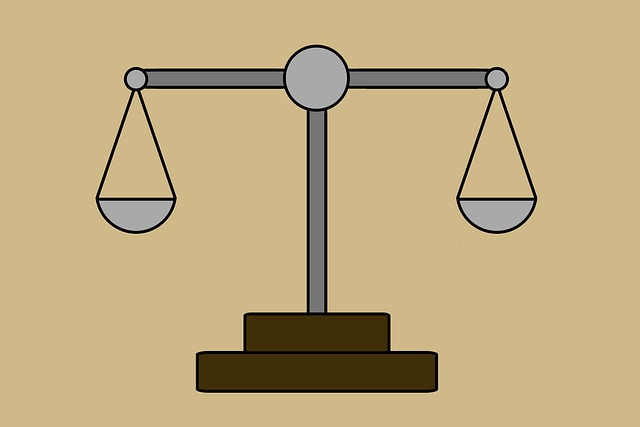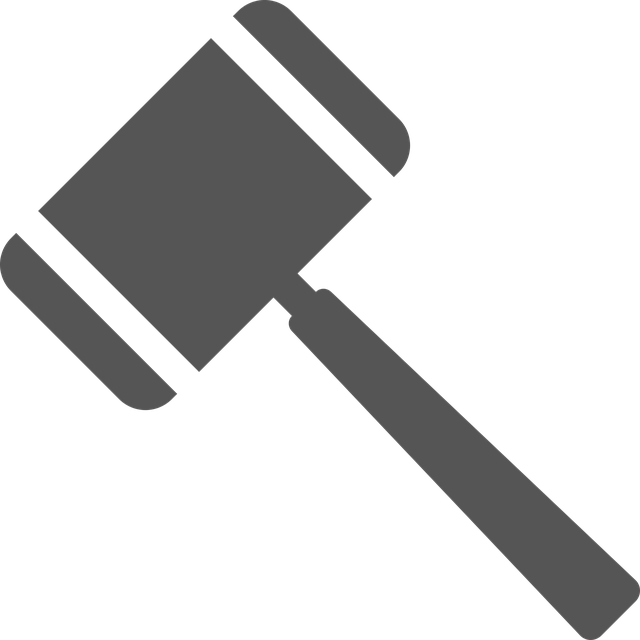
Category: Denver Colorado DUI/DWI Legal Representation
Denver Colorado DUI/DWI Legal Representation: Navigating the Complexities of Alcohol-Related Driving Offenses
Introduction
In the bustling metropolis of Denver, Colorado, the issue of drunk and impaired driving (DUI/DWI) has been a significant concern for law enforcement and legal professionals. The city’s vibrant nightlife and growing economy have led to an increased focus on ensuring road safety while addressing the challenges posed by DUI/DWI incidents. This article delves into the intricacies of Denver Colorado DUI/DWI legal representation, exploring how legal experts navigate this complex area of practice. By understanding the historical context, current trends, and future prospects, readers will gain valuable insights into the crucial role attorneys play in managing these cases.
Understanding Denver Colorado DUI/DWI Legal Representation
Definition and Core Components
Denver Colorado DUI/DWI legal representation refers to the specialized legal services provided by attorneys who focus on defending individuals charged with driving under the influence (DUI) or driving while impaired (DWI). This practice area involves a deep understanding of state laws, court procedures, and the scientific aspects of breathalyzer tests, blood tests, and other evidence related to alcohol impairment.
Key Components:
- Case Assessment: Attorneys thoroughly evaluate the case, reviewing police reports, test results, and witness statements. They identify potential defenses and strategic options.
- Legal Defense Strategies: Common strategies include challenging the admissibility of evidence, questioning the accuracy of testing methods, and arguing against procedural irregularities during arrests or investigations.
- Court Representation: Lawyers appear in court to represent clients, cross-examining witnesses, presenting defense evidence, and advocating for alternative sentences in lieu of license suspension.
- Negotiation: They negotiate plea deals with prosecutors, aiming for reduced charges or more lenient sentencing, ultimately minimizing the client’s legal and personal consequences.
Historical Context and Significance
The fight against DUI/DWI has been a long-standing battle in Denver, as it is across the United States. Historically, harsher penalties and increased enforcement efforts have been implemented to deter impaired driving. In Colorado, the legal representation aspect has evolved over time, with attorneys developing specialized knowledge to counter complex legal challenges.
The significance of skilled legal representation lies in several factors:
- Protecting Individual Rights: Lawyers ensure that clients’ constitutional rights are upheld during arrests, searches, and seizures. They guard against potential violations that could compromise the case.
- Navigating Complex Laws: Denver’s DUI/DWI laws are intricate, with specific rules regarding blood alcohol content (BAC) limits, testing procedures, and penalties. Legal experts interpret these laws to benefit their clients.
- Achieving Positive Outcomes: Through strategic defense tactics, attorneys can secure not-guilty verdicts, reduced charges, or deferred sentences, offering clients a chance to avoid severe consequences.
Global Impact and Trends
International Influence
The principles of Denver Colorado DUI/DWI legal representation extend beyond local borders, influenced by global trends and international laws. Many countries have adopted similar frameworks for addressing impaired driving, leading to the exchange of strategies and best practices.
Global Trends:
- Stricter Penalties: A worldwide movement towards harsher penalties for DUI/DWI has resulted in increased fines, license suspensions, and even jail time.
- Zero-Tolerance Policies: Many nations have implemented zero-tolerance laws, setting extremely low BAC limits (often 0.02% or lower) to deter drinking and driving.
- Public Awareness Campaigns: Governments and non-profit organizations worldwide launch campaigns to educate the public about the dangers of impaired driving, aiming to change societal attitudes.
Regional Variations
Different regions within the United States, including Colorado, have unique challenges and approaches to DUI/DWI enforcement:
| Region | Key Trends | Challenges |
|---|---|---|
| Northeast | Strict laws, active law enforcement, and robust public transportation systems reduce impaired driving incidents. | High legal penalties and aggressive prosecution can lead to over-incarceration of low-level offenders. |
| Midwest | A mix of strict laws and cultural attitudes towards drinking and driving vary across states. | Lack of consistent data collection methods makes tracking trends challenging. |
| West Coast | Progressive approaches, including diversion programs and alternative sentencing, gain traction. | High population density and tourist destinations contribute to increased DUI/DWI cases. |
| Southern States | Varied laws and cultural attitudes present challenges, with some states having more lenient penalties. | Limited access to public transportation can encourage impaired driving. |
Economic Considerations
Market Dynamics
The Denver legal market, particularly the segment focused on DUI/DWI defense, operates within a structured economy:
- Demand and Supply: The demand for DUI/DWI attorneys fluctuates with alcohol-related incident rates, seasonal variations, and local events. A high supply of qualified lawyers ensures competitive pricing and specialized services.
- Pricing Strategies: Legal fees vary based on the complexity of cases, attorney experience, and potential outcomes. Some firms offer flat rates for certain services, while others charge hourly or contingent fees.
Financial Impact on Clients
For individuals charged with DUI/DWI, the economic implications extend beyond legal fees:
- Fines and Costs: Denver’s strict DUI laws impose significant financial burdens on offenders, including fines, court costs, and victim compensation fees.
- Insurance Rates: Convictions can lead to substantial increases in auto insurance premiums, impacting individuals’ financial stability.
- Employment Consequences: A criminal record may hinder job prospects, particularly in industries with strict background checks.
Scientific and Legal Aspects of DUI/DWI Cases
Breathalyzer Tests and Blood Analysis
Scientific evidence plays a pivotal role in Denver Colorado DUI/DWI cases:
- Breathalyzer Tests: Standardized field sobriety tests, including breathalyzer readings, are commonly used to determine BAC levels. Attorneys challenge these results based on potential calibration issues, improper administration, or individual factors affecting test accuracy.
- Blood Testing: In some cases, blood samples provide more precise evidence. Lawyers may question the chain of custody, handling procedures, and potential contamination during testing.
Legal Defenses and Challenges
Attorneys employ various legal strategies to counter prosecution claims:
- Questioning Test Reliability: Experts can testify about the margin of error in breathalyzer and blood tests, raising doubts about the accuracy of results.
- Challenging Procedure: Issues with how evidence was collected or handled during arrests can lead to its suppression in court.
- Constitutional Arguments: Lawyers may argue that certain search or seizure procedures violated clients’ Fourth Amendment rights.
The Role of Technology
Advanced Legal Research Tools
Modern technology has revolutionized legal research, enabling attorneys to:
- Access Case Law Databases: Quickly research previous DUI/DWI cases and relevant laws, identifying successful defense strategies.
- Utilize Legal Analytics: Analyze data trends to anticipate potential outcomes and develop more effective arguments.
Digital Evidence Presentation
In the courtroom, technology enhances presentation skills:
- Interactive Demonstrations: Use software to illustrate complex scientific concepts, making them more understandable for judges and juries.
- Digital Evidence Display: Present test results, police reports, and other documents digitally, ensuring clarity and accuracy.
Future Prospects and Challenges
Emerging Trends
The field of DUI/DWI legal representation is constantly evolving:
- AI and Predictive Analytics: Artificial intelligence may assist in identifying high-risk driving patterns, potentially leading to more targeted enforcement strategies.
- Telelaw and Remote Courtroom Appearances: The COVID-19 pandemic accelerated the adoption of remote legal services, allowing attorneys to represent clients from distant locations.
- Advanced DUI Detection Techniques: Emerging technologies like portable breath analyzers at traffic stops could change the dynamics of field sobriety testing.
Challenges and Considerations
As the practice area continues to develop, several challenges emerge:
- Balancing Public Safety and Individual Rights: Ensuring road safety while upholding legal principles remains a delicate balance, requiring attorneys to stay informed about changing laws and attitudes.
- Addressing Opioid Use and Impaired Driving: The rise of opioid addiction poses new challenges for DUI/DWI cases, necessitating a nuanced approach to treatment and rehabilitation.
- Staying Updated on Scientific Advancements: Lawyers must keep pace with scientific breakthroughs in testing methods to provide effective defenses.
Conclusion
Denver Colorado DUI/DWI legal representation is a dynamic and critical area of practice that demands a unique blend of legal expertise, scientific knowledge, and strategic thinking. As the city continues to navigate the complexities of impaired driving, skilled attorneys play a pivotal role in protecting individual rights, ensuring fair trials, and contributing to safer roads. By staying at the forefront of legal and technological advancements, these professionals adapt to emerging trends, providing effective defenses and shaping public policy.









